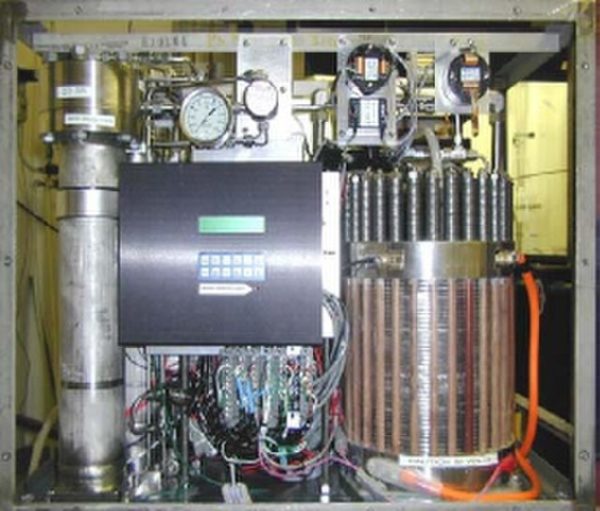Aurora Energy Research said in its “Q2 2024 European Hydrogen Market Report” (HyMaR) that the global pipeline for hydrogen electrolyzer projects surged by 55.2 GW in six months, reaching approximately 1.2 TW. The report noted a 4% increase in the last six months, demanding 5.5 PWh of electricity. Europe leads project development, with 32% of the capacity share, followed by Oceania at 21% in different operational or development stages.
Germany’s hydrogen generation capacity planned by 2030 has risen from 8.7 gigawatts in August 2023 to 10.1 gigawatts in February 2024. “This means that the upward trend in planning has intensified somewhat but remains theoretical for the time being,” said E.ON. According to the German energy company, out of 88 announced projects, a final investment decision has only been made for 16 projects with a planned generation capacity totaling 0.3 gigawatts. “Thus for only around three percent of the announced electrolysis capacity.”
Axpo and electric utility Rhiienergie opened Switzerland’s first 2.5 MW green hydrogen production plant in Graubünden, Switzerland. Axpo said the facility, situated near the Reichenau hydropower plant in Domat/Ems, can annually produce up to 350 metric tons of green hydrogen. Construction took one year, with the companies handling hydrogen compression on-site.
Plug Power said it has reached nameplate capacity at its hydrogen plants in the US states of Georgia and Tennessee. The US electrolyzer company said it will now benefit from a lower cost of hydrogen – a crucial step on its roadmap to achieve profitable growth.
Popular content
Nel has signed a capacity reservation agreement with Hy Stor Energy to develop the Mississippi Clean Hydrogen Hub (MCHH), securing more than 1 GW of alkaline electrolyzer capacity. As Hy Stor Energy's exclusive electrolyzer partner for phase one, Nel said it will provide alkaline and PEM technology and leverage its hydrogen expertise. Hy Stor Energy said it aims to produce, store, and deliver carbon-free renewable energy at scale.
Frontier Energy, GTI Energy, and the Center for Electromechanics at the University of Texas at Austin have inaugurated a hydrogen research and demonstration facility, involving more than 20 companies. The facility will produce zero-carbon hydrogen using solar and wind-powered water electrolysis, along with renewable natural gas steam methane reformation. The generated hydrogen will fuel a stationary fuel cell for clean power at the Texas Advanced Computing Center and supply zero-emission fuel to Toyota Mirai fuel cell electric vehicles and fuel cell drones.
This content is protected by copyright and may not be reused. If you want to cooperate with us and would like to reuse some of our content, please contact: editors@pv-magazine.com.


1 comment
By submitting this form you agree to pv magazine using your data for the purposes of publishing your comment.
Your personal data will only be disclosed or otherwise transmitted to third parties for the purposes of spam filtering or if this is necessary for technical maintenance of the website. Any other transfer to third parties will not take place unless this is justified on the basis of applicable data protection regulations or if pv magazine is legally obliged to do so.
You may revoke this consent at any time with effect for the future, in which case your personal data will be deleted immediately. Otherwise, your data will be deleted if pv magazine has processed your request or the purpose of data storage is fulfilled.
Further information on data privacy can be found in our Data Protection Policy.